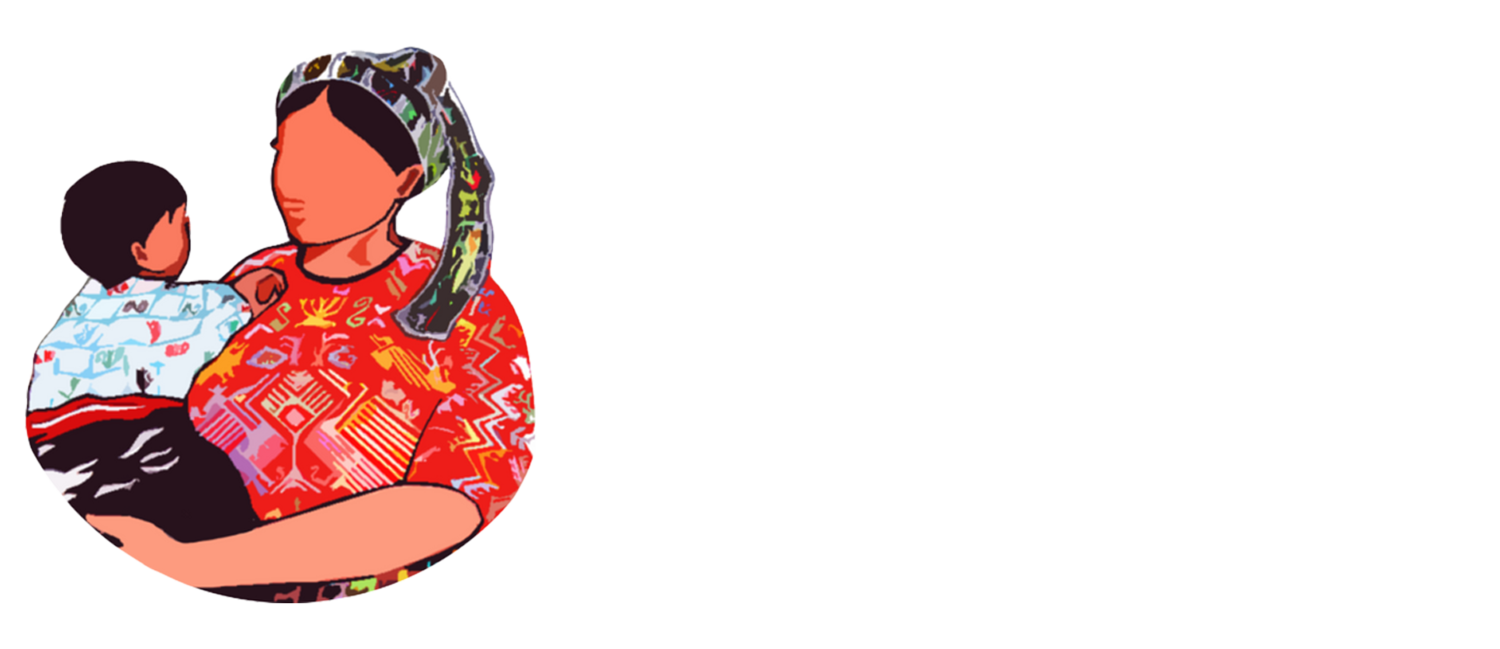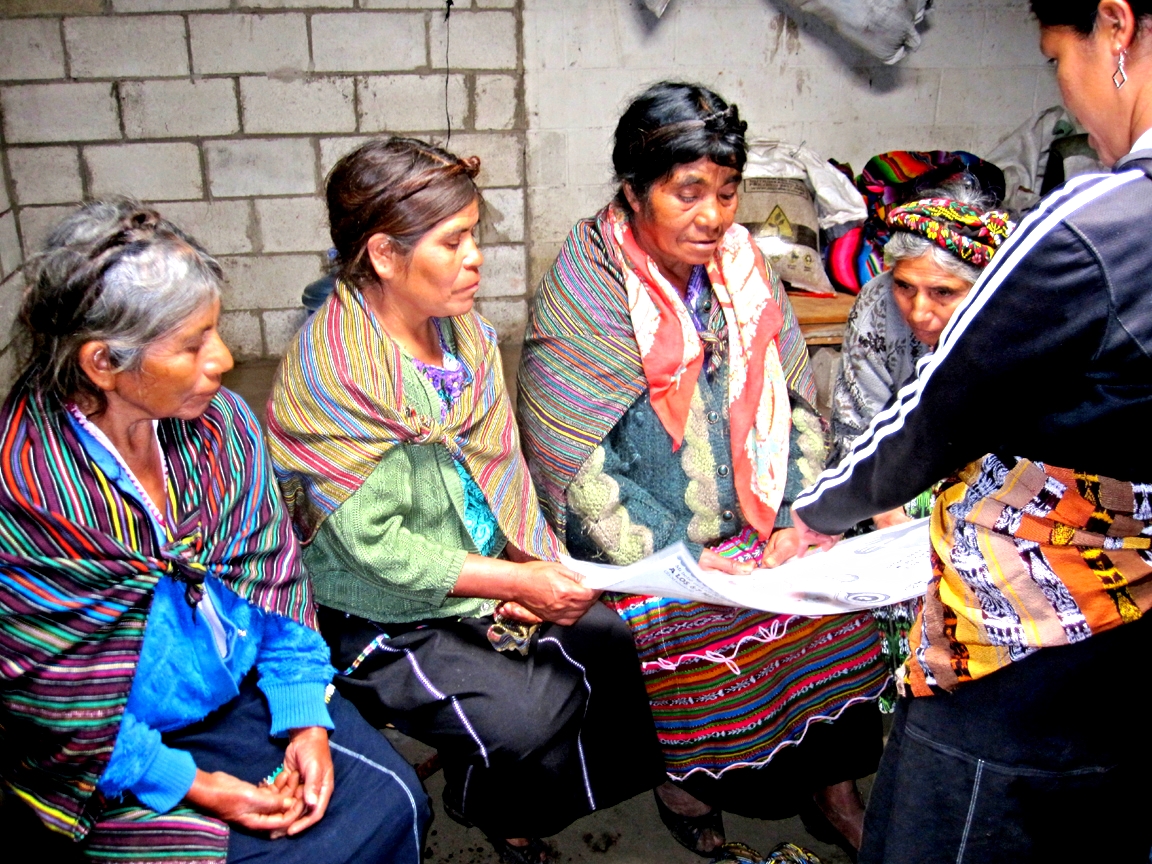Maya Midwifery & birth care center
ACAM's primary focus is maternal-child health. While all of the midwives attend home births in the community , we have a large, well-equipped birth center where many women choose to come for a safe and comfortable birth. It provides mid level care for women with complications or risk factors and is the only facility of its kind owned and operated by indigenous women in Guatemala.
The ACAM Center has 3 fully equipped birth rooms, and there are at least 2 midwives present at all times in order to attend to births and consults. ACAM provides prenatal and postpartum care including traditional as well as biomedical approaches. There is a traditional chuj (temescal) in the Center and plant medicines as well as a pharmacy.
Women are encouraged to receive blood work to check for anemia, diabetes and HIV, and can now receive reduced cost ultrasound services throughout their pregnancies. Additionally, all prenatal patients are provided with information and advice regarding nutrition, risks and warning signs, family planning and many other topics. They are encouraged to return for follow-up visits throughout their pregnancies.
While the ACAM midwives are competent in both prenatal care and attending to births, they welcome the opportunity to work alongside healthcare professionals, and continue learning new and varied skills. We encourage midwives, nurses, obstetricians, primary care MDs, radiologists and ultrasound techs to come and volunteer in our clinic to provide consultations and mentor midwives and apprentices.
General Medicine
The ACAM midwives recognize their unique ability to provide primary health care in a culturally and linguistically appropriate manner not always found in area hospitals and clinics.
Many of our midwives are trained in recognizing and treating common health problems, such as respiratory and gastrointestinal problems. Many local residents choose to come to ACAM rather than their local health centers.
With a fully equipped pharmacy, we are eager to integrate our traditional healing with modern medicine, and therefore welcome health care professionals who can provide general or specialized medical consultations, and/or trainings for our staff of midwives.
Interested in assisting with general medicine? This is an opportunity for volunteers with a flexible schedule allowing them to stay for a few days, or willing to plan a day of concentrated visits (for example, a dental clinic day). Learn more on our Volunteers page.
Mobile Clinics
ACAM serves an area where there are a number of small and very isolated communities. In order to serve these communities the midwives plan regular trips to offer midwifery, well woman and general medical care. They have partnered with local firemen and the Red Cross to address issues of safe and accessible emergency transport in these areas.
Many times ACAM midwives visit areas so isolated that it takes several hours to arrive, and the communities are often populated with extremely low-income families that struggle to afford health care services.
By traveling to these communities, ACAM hopes to extend safe prenatal care and education to women who would otherwise be without, while also helping the organization to gain more recognition, and possibly motivate some women to come to ACAM in the future for a safer birthing experience. They have reached out to local midwives in these communities and offer them training sessions in their indigenous language as well as assistance in getting necessary supplies.
Interested in assisting with mobile clinics? This is a great opportunity for healthcare providers with limited time availability, as it can be a one-day volunteer activity. We also need help in finding financial and material support for these efforts. Learn more on our Volunteers page.
Community Support & Education
ACAM is involved in a number of organizations working for the rights of women in Guatemala, fighting for women to have control over their bodies, their careers, their education, and their finances. ACAM midwives participate in regular trainings related to various health care topics as well as socioeconomic themes. Additionally, the midwives of ACAM work to provide education to their community related to health and nutrition, disease prevention, family planning and sexual rights. The ACAM community room is used by many community groups involved in various cultural, economic, and environmental issues.
The ACAM midwives are in the forefront of the fledgling national organization of indigenous midwives. They are striving to demonstrate the important role they can have in improving health care in their communities and gaining a voice for indigenous midwives in local and national health care planning.
We have welcomed many volunteers with a variety of backgrounds related to social work, education, advocacy and public health, and are always eager for further trainings related to domestic violence, disease control and prevention, community and rural health promotion, and countless other socioeconomic topics.
Interested in assisting with community education? This is a good opportunity for both short-term and long-term volunteers. Learn more on our Volunteers page.
Midwife apprenticeship
ACAM recognizes the importance of maintaining their rich tradition of midwifery while constantly striving to expand their skills and effectiveness. They see a continuing supply of local providers as the best hope for sustainable, improved health care in their communities. To that end they have developed a training program in their Mam language for the young women in their communities who aspire to be midwives.
Students begin their apprenticeship with a year of classroom study, where they learn about labor and delivery, pre- and postnatal care, medicinal plant usage, sexually transmitted disease control and prevention and basic medical procedures such as placing IV lines, suturing, and simple lab work. Additionally, the students are taught about nutrition, patient advocacy, family planning, identifying and addressing risk factors such as abuse or violence, and how to effectively educate patients related to all of these topics.
In their second year, students begin their clinical work, or apprenticeship. Each apprentice works weekly shifts in the ACAM center, attending consultations, births and mobile clinics, and gaining supervised experience in midwifery and primary care. Postgraduate workshops are offered on a regular basis.
During our classroom training year, we welcome volunteers who can provide trainings on topics ranging themes such as neonatal resuscitation, suturing and IVs to domestic violence, stress reduction and relaxation. Clinical mentoring and help with developing systems and curriculum is also needed. We strive to provide a dynamic education so that new midwives complete the program with the knowledge, competence and flexibility needed to effectively serve the women of their communities.







